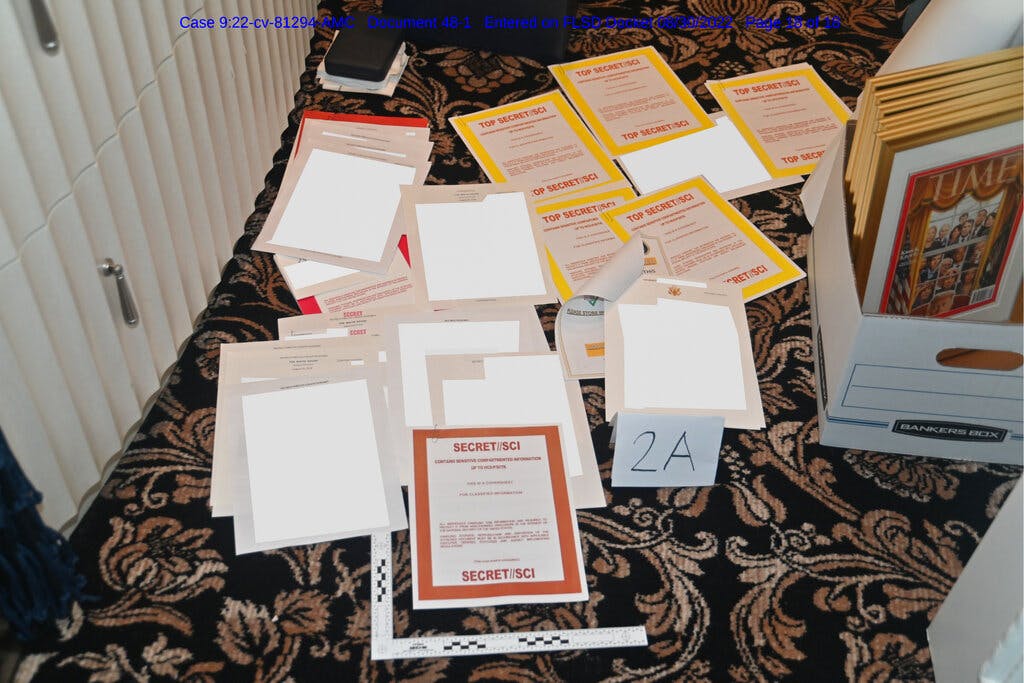President Trump Previews Appeals Strategy
President Trump’s legal team fired a warning shot to those speculating that Judge Aileen Cannon’s decision faces reversal.

In a filing directed to the riders of the United States Court of Appeals for the 11th Circuit, who will weigh in on the use of a special master in the Mar-a-Lago investigation as well as the district judge who granted permission for one, President Trump’s legal team fired a warning shot to those speculating that Judge Aileen Cannon’s decision faces reversal.
In previewing arguments they will make during the next stage of the probe, Mr. Trump’s lawyers also asked that Judge Cannon ignore the government’s call to stay the appointment of a special master during appeal. The ability of the DOJ to review the documents seized from Mar-a-Lago is currently on hold.
In seeking to continue that freeze, Mr. Trump’s lawyers trumpet that the “investigation of the 45th President of the United States is both unprecedented and misguided” and that it is nothing so much as a “document storage dispute that has spiraled out of control.”
In building out the case that the DOJ is not entitled to the documents it took from the Palm Beach compound, the filing laments that “the Government wrongfully seeks to criminalize the possession by the 45th President of his own Presidential and personal records.”
Calling the appointment of a special master a “sensible preliminary step towards restoring order from chaos,” Mr. Trump’s latest legal import, Christopher Kise, goes even further to suggest that “all of the seized materials” belong either to Mr. Trump or the National Archives, and not to the DOJ.
In suggesting that the more than 10,000 documents found at Mar-a-Lago are “indisputably governed exclusively by the provisions of the Presidential Records Act,” Mr. Kise sketched the contours of a sweeping assertion of presidential prerogative, one that attaches to not only the current chief executive but the last one as well.
Even as the filing makes broad arguments regarding executive power, it notes the personal nature of some of the confiscated material, including “approximately five hundred pages of material that is likely subject to attorney-client privilege” and “medical documents, and tax and accounting information.”
Working to convince Judge Cannon not to stay her decision and the 11th circuit to uphold it, Mr. Kise observes that “a special master is not an agent for either President Trump or the Government,” but rather a “neutral third party.”
Contending that the president is an “original classification authority” with the ability to declassify any document, Mr. Kise omitted whether Mr. Trump had exercised that power, or merely possessed it in potential form.
Making a renewed plea for the indispensability of the special master that Judge Cannon has already appointed, Mr. Kise asserts that “given the significance of this investigation, the Court recognizes, as does President Trump, that it must be conducted in the public view.”

